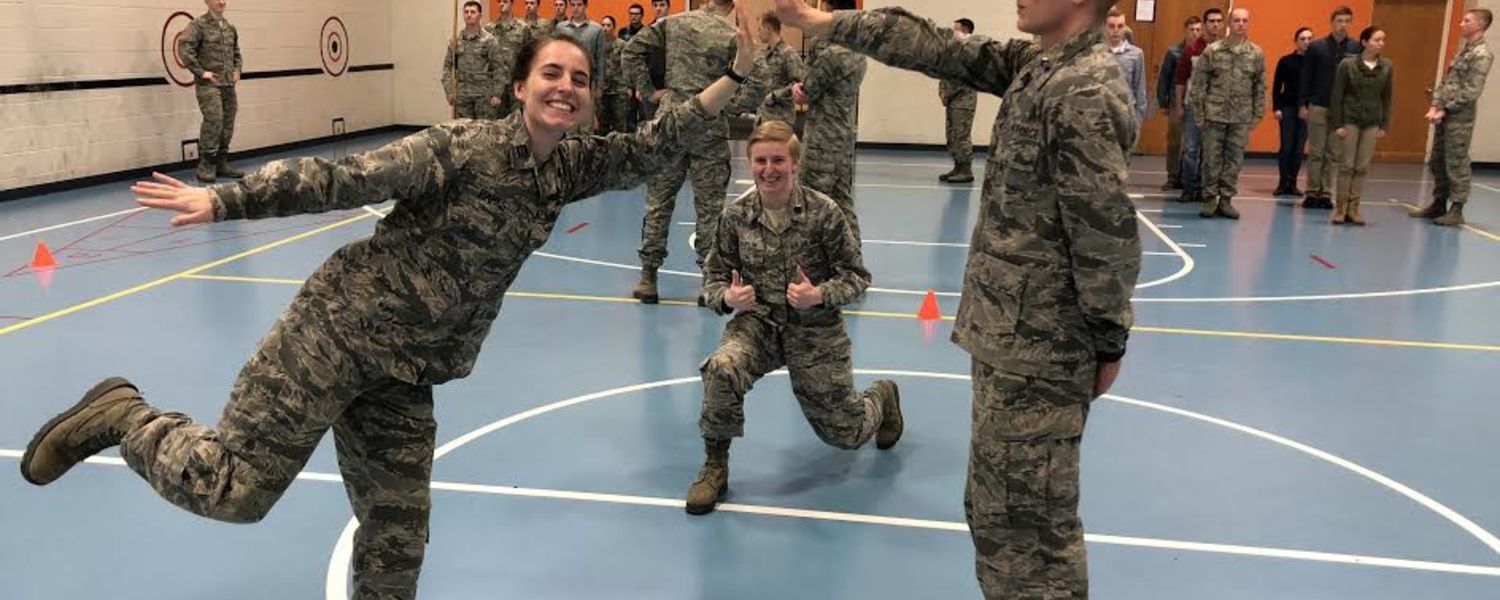When the national head of the Reserve Officers' Training Corps (ROTC) asks you to lunch, you don't turn him down.
School of Communication Studies (COMM) junior Rachael Parks earned one of those coveted invitations following her stellar performance on a case study she completed on the ROTC program for an organizational communication course taught by COMM Assistant Professor Cristin Compton, Ph.D.
Compton had each student select an organization s/he was involved with. In a four-part case study, students analyzed the organization using theories and concepts from a critical organizational perspective and presented information as if they were organizational consultants.
 “I really am thankful for Dr. Compton and her instructional style. This project really demanded that we be motivated and created something tangible we could be really proud of. It’s really exciting to feel like I’m producing academic work that actually matters,” Parks said.
“I really am thankful for Dr. Compton and her instructional style. This project really demanded that we be motivated and created something tangible we could be really proud of. It’s really exciting to feel like I’m producing academic work that actually matters,” Parks said.
COMM Marketing Assistant Mikala Lugen talked with Parks about her project and discussed how it aligns with her professional goals.
Q: How do you feel after completing your case study?
A: It feels great to have something tangible to represent 15 weeks of academic work. This course has really pulled the real world into the curriculum so I guess I’m just feeling thankful. The project was really well planned, so I never felt overwhelmed by it.
Q: Did you have any goals going into your case study that it would lead to something bigger?
A: My case study was conducted on the program I‚Äôve been an active member in, and will graduate from. I will always have the opportunity to play a role and potentially re-enter the Air Force ROTC (AFROTC) program as an instructor, which is something I would love to pursue in the future. I loved researching and analyzing the data and being able to offer feedback on my program. I hope it leads to an opportunity where my advice and time can be considered very seriously, even if the research I have produces small change here at 91≤÷ø‚. I‚Äôve always aspired to make an impact on the Air Force.
Q: How did the national head of the ROTC contact you and get information on your case study?
A: Colonel Tammy Knierim actually reached out to the 91≤÷ø‚ AFROTC detachment a while ago, expressing interest in meeting a select few cadets. This was the same time I presented my research to the staff at the AFROTC Detachment in Terrace Hall. Due to great timing, the staff gave her my name. After lunch, she gave me her personal business card so that I could send her the full project.
Q: What was your reaction when she asked you to lunch?
A: When I was notified that I would be actually having lunch with her, I think I almost fainted. I can not think of anyone with more power and influence in the Air Force ROTC program. She controls the nation's largest and oldest source of commissioning Active Duty Air Force officers.
Q: What are your professional goals upon graduation, and how will communication studies help you achieve them?
A: Because of my membership in AFROTC, I was contracted into the Air Force Ready Reserves this past September, which means I’m technically enlisted. When I graduate, I’ll commission as an active duty second lieutenant. My position as a second lieutenant in the Air Force will involve mostly managing and supervising others, which is where my communication studies degree will absolutely come in handy. I'm well prepared when it comes to interacting with people interpersonally and on a public stage. I'm continuing to develop a diverse skill set for my communication studies' arsenal, which will be needed throughout my professional career.

